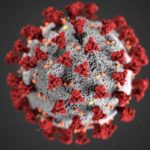
Daniel O’Day, the CEO of Gilead Sciences published an open letter on the biopharmaceutical company’s website warning that initial positive results of its drug remdesivir for COVID-19 patients are limited and preliminary. O’Day’s letter says, in part:
“Remdesivir is an investigational treatment and has not been approved for use anywhere in the world. In the broader efforts to determine whether it is a safe and effective treatment, we have some way to go. Multiple clinical trials are underway across the world to build a complete picture of how remdesivir works in various contexts. These studies cover a range of patient populations across different demographics and with varying types of symptoms: moderate, severe where patients need oxygen support, and critical where medical ventilation is required. These patients all receive remdesivir through intravenous infusions in a hospital setting.”
O’Day’s letter says there are 7 clinical trials underway now. Remdesivir was initially looked at as a drug to help combat Ebola, but trials did not prove its usefulness.
The New England Journal of Medicine published a report on April 10 that in one trial that included 61 patients, data from 8 could not be analyzed. Of the 53 patients with usable data, 36, or 68%, showed improvement. The NEJM notes: “Measurement of efficacy will require ongoing randomized, placebo-controlled trials of remdesivir therapy.
The University of Chicago School of Medicine has 125 people enrolled in a trial, and doctors held a video conference with faculty members earlier this week and talked about what they had learned. STAT News got a leaked copy of the video. They reported that of all the patients, only 2 had died and most had shown improvement in fever and respiratory systems. But University of Chicago is only one of the institutions with patients in a trial, and results are preliminary.
The NIH today published the results of a study of remdesivir in macaque monkeys, in which it was shown that remdesivir helped prevent pneumonia, but it did not reduce viral shedding, meaning the monkeys, while improving, were still contagious.
The NIH is conducting a randomized, controlled clinical trial at the University of Nebraska Medical Center, which began in February.
CNBC reporter Meg Tirrell reported that results from several trials should be out soon: late April, a Gilead trial in severe patients, and in late May, a Gilead trial in moderate patients plus a National Institutes of Health in a double-blind, placebo-controlled trial, which is the “gold standard” for clinical trials.
A number of companies around the world are working to develop both vaccines and treatments for COVID-19. Some are looking at drugs or vaccines that have been developed for other diseases, and some are looking at entirely new drugs and vaccines.